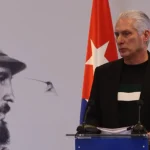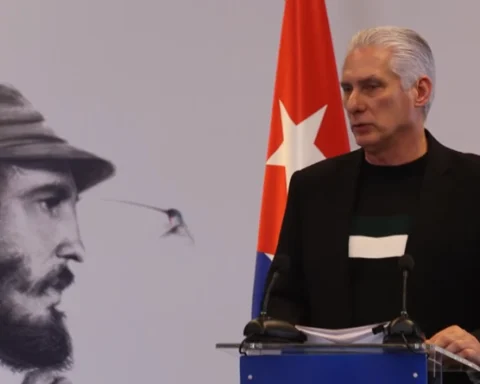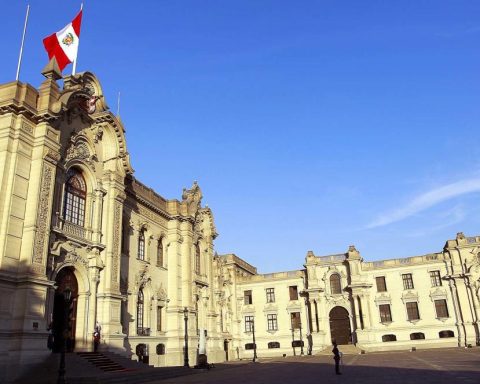Today, Friday, the Chamber of Deputies and Deputies, and later the Senate, will carry out, through a special session, the vote on the Official Letter of the President of the Republic, through which he requests the agreement of Congress to extend the validity of the State of Exception Emergency Constitutional Court (EECE), in the Region of La Araucanía and the provinces of Arauco and Biobío, in the Region of Biobío. This is the fourth extension of the exception period proposed by the Government to Congress, after the last session held on July 13, when the Senate approved the proposal, by 36 votes in favor and 2 abstentions.
A request that is based on the constitutional norms mandated by Parliament’s agreement for the extension of an EECE, once it has already been issued through a decree and extended once, by the same means. As on previous occasions, measures are established to guarantee the safety of routes and roads in the so-called South Macrozone, as well as the free transit of public goods and services.
With the complexity that this was a district week, so the parliamentarians were not in Congress, the Executive set out to align the official hosts, something that for the government spokesperson, Camila Vallejo, has not implied ” big concerns.” In this regard, Vallejo pointed out that “we hope to have the votes that we have had from our coalitions, and perhaps we have a concern rather from the opposition, which has been very critical about the extensions, where we also hope to have that support ”.
This occurs, after the Government suffered a heavy defeat last Wednesday, after the Chamber of Deputies and Deputies rejected the substitute veto of the project to protect critical infrastructure, which sought to be an alternative to the State of Emergency in the southern part of the country. In addition to the votes against the right, some pro-government parliamentarians such as Matías Ramírez and Lorena Pizarro (PC), as well as Ana María Gazmuri (Humanist Action) also rejected the veto. For its part, after the third extension of the State of Exception, some sectors of the ruling party requested that it be the last, so the outlook for the Executive is not entirely encouraging.
From inside Approve Dignidad, they have shown a position contrary to the State of Exception in the South Macrozone. In this sense, the communist deputy and member of the Citizen Security Commission of the Lower House, Alejandra Placencia, pointed out that “as a PC bench we have said it, militarization should not be naturalized. On this occasion, and after several renewals, The Ministry of the Interior must show progress not only in the persecution of organized crime, but also in the land restitution agenda and the Good Living Plan”.
The parliamentarian refers to the public program announced by the Minister of the Interior and Public Security, Izkia Siches, last May, and which seeks to demonstrate the Government’s commitment to indigenous peoples, also recognizing the debt between the State of Chile and the Mapuche town. It is a Plan that contemplates land restitution, the reactivation of the bill that creates the Ministry of Indigenous Peoples, the development of territorial parliaments, in addition to an investment of around $400 billion pesos destined to improve the quality of life of the communities and inhabitants of the Southern Macrozone. In addition, the program considers security measures such as the appointment of a prosecutor with preferential dedication to the investigation of criminal organizations, and the decree of a State of Emergency for the protection of routes.
State of Exception and its future in the South Macrozone
According to the deputy Placencia, the Security Commission of the Lower House has recently met in Araucanía, where she assures, they have been able to verify on the ground the deployment of the Armed Forces in coordination with the police in the region. In this regard, the parliamentarian assures that “the data indicates that the decrease in acts of violence is real.” This in relation to a positive balance made by the Government, after the deployment of military forces, together with members of both police forces, on roads in the area.
Placencia insists that the PC is against militarization, but that “in this specific case, it has served as a tool to allow the State to enter places that have been neglected for years, with public investment and reestablishing rights of We are clearly against naturalizing it and that is why we study its renewal on a case-by-case basis, taking into account the advances in the Good Living Plan and, I reiterate, the progress in land restitution, which is central. security for the State to arrive”.
This Friday’s vote in both houses of Congress, in the context of a district week, occurs just days after parliamentarians decided to reject the substitute veto introduced by the Executive, and amid requests from some legislators to expand the initiative to the Los Ríos Region, due to the latest acts of violence recorded in the area and which prompted the visit of the Undersecretary of the Interior, Manuel Monsalve. In this sense, the communist deputy asks the Government to improve the channels of coordination between the Government and its benches, to avoid failures like last Wednesday.
“I supported the veto on Critical Infrastructure, because it gave us the possibility of having a tool that did not restrict individual rights and focused on protecting infrastructure. But before talking about this or that bench, personally, I hope that the channels improve of coordination between the Executive and its parliamentary caucus,” said Placencia, regarding the role carried out by the General Secretariat of the Government, headed by Minister Giorgio Jackson.
In the preview of the special session, which will take place from 10:00 am in the Chamber of Deputies, and the result of which will depend on the vote that will take place in the Senate this noon. Facing the crucial day in Congress, the Minister of the Interior, Izkia Siches, expressed her optimism that the parliamentarians could interrupt their district week and “support this measure that from our perspective allows us to maintain a preventive deployment to ensure the routes”. Finally, and despite some critical voices in the ruling party, today, Friday, the fate of the fourth extension of the State of Exception, in the South Macrozone, will be known.


















